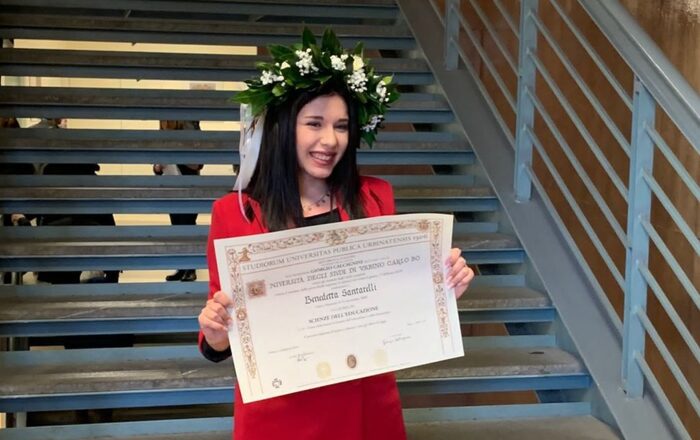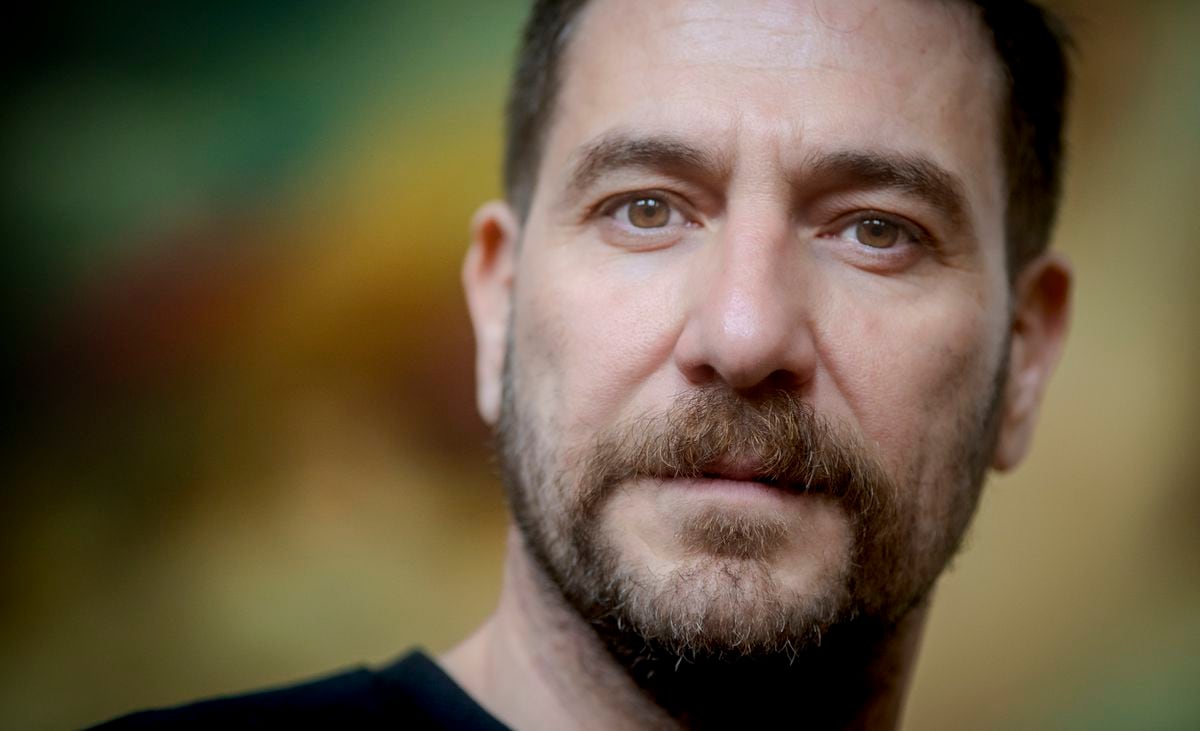Nurit Galron (Photo: Ohad Romano)
Nurit Galron's huge hit "Forgotten Childhood" is currently celebrating 40 years. The song, which appears on her wonderful fourth album "I Saw Beauty", was written by Yaakov Gilad, who studied with Galron in high school and wrote the song about their childhood. And what about the girl who was still in her? "The girl I was sure stayed with me, maybe I even deny it," Galron says in an interview with Walla! Culture. "I think as a child I was a little shy, and the shyness is still in me. I was a very sensitive child, and I'm still working on it today. I see myself a lot in the girl I was, I saw it in my children as well, and today I see it in my grandchildren. Obviously, in many aspects, I'm not a girl. I have a lot of insights into life and the world in general."
It's a little surprising to me that you're shy, but it reminds me of something I was once told: "There are three different realities – image reality, emotional reality, and factual reality." Where does the gap between these realities in your life become clearer for you?
"I'm not captive to the image reality, I live the emotional and the factual. Image is how you see me, how you see me, it doesn't come from me. I do what I really feel and love and believe in, and not because now I have to be a rapper in terms of image. My truth is emotional truth. The factual truth is factual: I am from that generation, the previous one. But I've never lived in an image reality. Never."
The shyness that remains in you and your lack of interest in your image correspond to me with something you said at the beginning of your career, in one of the first interviews you held, 45 years ago, to Adit Ne'eman in Yedioth Ahronoth: "I am not a star." Over the years, have you defined yourself differently? Has your attitude toward stardom changed?
"What are stars? I live for many years, when the public sees me. I don't think I live a stellar life any more than... Maybe so. I do live with some kind of privilege, maybe they'll give me the better table in the restaurant, but I don't feel like I'm some kind of 'star'. I think I'm from that generation, which isn't so starlike. We were not so stars. We lit up – but we didn't sparkle so much, I think, especially the artists who deal with music the way I did, and not pop or more flashy things, but in a different genre of music, of word, of melody and of harmonies. I could be wrong. You know, if I saw Bob Dylan on the street right now, I'd chase him down and ask to take a selfie. But what are stars? I'm asking you."
Your statement "I'm not a star" shocked you then – and fits you today. When I think of what a real artist is, I think of someone like you. You are perceived by me as a huge and real artist - not as a publicity chaser.
"First of all, it's a very big compliment when you call me a real artist. It's not a 'star'. A star, for me, has something that's a little bigger than all its parts, and I don't feel like a star. I'm not a star."
This month marks the 20th anniversary of the launch of the program "A Star is Born". I guess the fact that we didn't see you sitting as a judge on a reality show - it's not by chance. Is it because it's not your natural area?
"Look, I've gotten offers here and there and turned them down because I don't feel like I can judge someone if they're a singer and whether they deserve to succeed or not. I can't hurt someone who feels it's in their soul and tell them, listen, leave your dreams, go do something else. It's hard for me in my personality. It's not that I don't know how to judge, but that's my opinion. Sometimes I hear something, and say what is it? What kind of thing is that? And then it became a big hit, and I'm like I don't understand anything already."
After almost four years in which she did not release a new original song, Nurit Galron today (Sunday) releases a new and heart-wrenching song called "Calling Me to Come" (listen - above). The lyrics, melody and musical production of the song are signed by young artists Elad Shlomo Terry and Maor Shoshan. It is a song of longing for home and love. Galron says that this desire connects to "a yearning for security, for quiet, for four walls. I already know this in my life, but around me people are close to me or lose it or are still looking for it. It's this quiet of life. The four protective walls. Home."
More in Walla!
"There was a point when I didn't like singing 'Toy,' but I realized there was no point in ignoring that moment."
See full article >
Nurit Galron (Photo: Nikolai Busgin)
It's been four years since the last original song you released. Reporters often ask artists: Why did it take you so long?
"I don't act on when it's 'worthwhile' or 'should' put out a song. I get a lot of material, and it really depends on my moods, my infatuation with a particular song. I just fell in love with that song, and I said I wanted to play it. That's all. There are no rules and no desire to wait for a certain time or timing."
It's nice that over the years, alongside working with cultural giants, you've often worked with young people, whether it's Aviv Geffen, who was relatively at the beginning of his career, or Ofer Meiri as a music producer, and in the new song you work with the young writers Maor Shoshan and Elad Shlomo Terry.
"It satisfies me. Really a lot of young creators send me their works. I believe that the young creators have a kind of hunger and virginity that I find really intriguing and charming. I'm glad I haven't made a mistake over the years. I'm not the one who invented Aviv Geffen, but I knew how to touch it at the right moment, or Arkady Duchin. It gives me great satisfaction that I can open a window to a new creator."
The new song comes just before Galron's new tour, produced by Guy Wihl, which will open on the evening of Tu B'Av, August 3, at the Zucker Hall in Tel Aviv's Heichal HaTarbut. "It's a tour after ten years of touring that I've done, and I felt the need to freshen up a bit, a little bit to try to touch my songs, which I've been touching for so many years, in a way that would interest me. Guy and Yahl make it really exciting. I'm waiting for this round and also waiting to see how the audience will get it. It will be a different production than what I've had so far."
As mentioned, one of the creators who received a great opportunity from Galron at the beginning of their career is Aviv Geffen. He wrote for Galron, together with his sister Shira Geffen, her hit song "You Here I Miss", which marked his 30th birthday a few months ago. Not many people know that the C-part part was not included in the original version and was added only at Galron's request. "When I heard the song, it was very short, it had two verses and a pizmon. I felt then, and even today, I sometimes feel that the C-part is some kind of climax that can make a twist in the song. I felt that there was a lack of both a home and a C-Part. Spring was then in the Moonlight period, he was busy and it was very difficult for him to bring more things to this song, so his sister Shira wrote the second and third verses. I was very insistent on C-Part. Aviv did not do so well. And then Ofer Meiri and Shmulik Bodgov brought in this amazing guitar that he does there, we played it for Aviv and he said wow, it could be C-part and he wrote lyrics about it for this C-Part, and I think a song came out at the end with a beginning, with a climax and with an end, and I'm very happy to this day about this song."
More in Walla!
"Stop shouting, let the dead live": Meir Shalev's latest work is revealed
See full article >
Nurit Galron, 1979 (Photo: Walla! NEWS, Alon Gerard)
Galron's career also includes several songs that boldly touch the rough nerves of this country. The most prominent case on the front is an event in 1989, when she released her album "After Us the Flood", and the title song written by her and composed by Arkady Duchin. Galron first expressed her political-social views on Israeli indifference to the first intifada, and it included the poignant lyrics, "Don't tell me about a girl who lost her eye."
Almost 35 years after the "After Us the Flood" storm, and against the background of the radicalization of political discourse, from the networks to the media to the Knesset, could you in a more combustible reality today release a song like "After Us the Flood"?
Galron weighs her words carefully. "I think every song has its own time. And I'm most sorry that the problem that the song presented then hasn't been solved to this day."
"I find today's protest very impressive," Galron adds. "Maybe it's really time to stop and rethink our trajectory, in all our life paths here, social, economic, cultural of course, education. There is some sense that we are galloping to a not so good place. The protest, I think, helped people understand the importance of being involved in building the character of the country's life in our future here. I think there used to be some kind of apathy, there was some lack of caring and unwillingness to get involved. And most of all there was a lack of faith in our ability to influence even if you are involved. It seems to me that today there is this kind of feeling that something can be influenced, something can be done. I think the most fundamental thing here is people's lack of inclusion of people who don't think like you, all the social and human values that you believe in become political, and politics poisons every part of this society. I think it's a very interesting time. I really hope that nothing but good will come out of it, for all of us of course."
Another song of yours that touches on life here and remains topical is "The Mad Song of the Land", written by Sobol and composed by Rechter, and includes the line "Anarchists walk on the roads, their skin is only cotton". We are at a time when the right-wing regime is calling demonstrators against the regime coup "anarchists."
"It's funny, when I sing 'The Crazy Song of the Land' in concerts, and I sing it, so every time I get to the word 'anarchists' there's this shouting in the audience, 'Wow,' it's a little even puzzling, because this song was really written from the other side, completely opposite. Yes, you know, it's funny that protesters are called 'anarchists.' I find it puzzling."
More in Walla!
Yesterday at Tuna Park he looked at Ravid Plotnik and cried. Thousands wept along with him
See full article >
Nurit Galron and Rafi Reshef (Photo: Rafi Deloya)
The interview takes place by phone from New York, where Nurit Galron and Rafi Reshef are on another visit to their son and grandchildren who live there. Galron has previously said that her career was influenced to some extent by her mother having to give up a career as a singer. Asked if Galron's being a successful singer had any opposite effect on the fact that none of her children chose to go into music, she says: "I gave my children all the options to choose what they like to do. They love singing, they love music, they heard a lot of music at home, but they had no dreams of success in this field. Look, in our house I wasn't the only one, there was another career next to me, and they didn't go towards Rafi's career either. It was their choice. We encouraged their every desire to invest in what they love."
With a slight reservation: your daughter Michal touched the field of communications - worked for a time in Haaretz.
"Yes, she had a touch on communication, it was a time when she was looking for herself and today she is a psychologist."
About two and a half months ago, Israel Prize laureate Meir Wieseltier, who performed his song "I Have Sympathy" to the music of Shlomo Gronich, passed away. What does this song and Wieseltier's mean to you?
"I still sing 'I Have Sympathy' to this day. There's no show where they don't ask me for the song. Wieseltier was a huge writer. It was very, very difficult to compose. After 'Sympathy' I looked for a lot of his songs that could be composed, and it was impossible. He was a huge poet, very Tel Avivian. I think this song brought my jazzy side and also brought a very lyrical-poetic text and conveyed it to a wide audience. I think that's a very important milestone in the way I've done."
How do you feel when a singer covers a song you originally performed and gets renewed success through them - whether it's "Sympathy" performed after you by the composer of the song Gronich, "One Soft Touch" renewed by Gidi Gov in changing the sex in the lyrics, or "The Magic Nights" covered by The Witches. Have you ever said to yourself with some frustration: "Hey, this is my hit"?
Kidding. "Look, since I also do it with songs that aren't mine, I can't express a real opinion. I think 'The Magic Nights' was the first cover they did of my songs, if I'm not mistaken, and Inbal took it to a completely different place, much less childish and less innocent. Listen, I also do covers for others, when you put out and it becomes a hit, it goes into the hands and ears of the public a little bit, and it's somehow not so much in my hands. Sometimes you say, 'Wow, what a great cover,' and sometimes you say, 'It's very good that it's not something.'"
Nurit Galron (Photo: Flash 90, Moshe Shai)
As in other fields, discrimination against women also exists in the music industry, including at festivals and radio plays. And yet, in the last two years, there has been a proliferation of female voices on the charts. And which of the new singers do you like the most?
"First of all, the trend is good. It just means that when there is some kind of criticism and people insist on all kinds of principles, then it is also possible to change. And here it changes. I'm very, very happy about it, I'm very happy. The trend of women in Israeli music is really a good trend. As far as the new singers are concerned, there are lovely and wonderful singers who will only succeed."
Did you like Noa Kirl's performance at the last Eurovision Song Contest in Liverpool?
"Absolutely. The way she does is really impressive, her ambition and ability to persevere, her self-discipline. Absolutely impressive."
And from discrimination against women - to the problem of ageism. Another Israel Prize laureate you worked with is Nahum (Nakhacha) Heiman. In his last years he encountered severe economic distress, which shook his world, and I first revealed in an interview with him to Maariv, when he said, among other things, the harsh words: "Israel is a country that does not take care of its veteran artists." Is this an issue that bothers you?
"In general, most artists, I'm not saying everyone, even the big and successful, don't get rich in Israel. We're not like in the United States here. They make their money during the hot period, and of course there is not always a hot period, and then suddenly it ends. They will not look for another profession. They won't go build a new career for themselves in another field. So you really have to keep these artists, even when they're in the pretty last period of their lives or on the sidelines of this career. They have no security. They have no help. Sometimes they also don't keep so much on pension payments. We need to protect them, we need the state to give them back. They are stones in this local culture. They can't end their lives penniless. If you can both give them something and allow addicted shows that they can perform in, I think it's really an obligation on the part of the state to give them that security."
More in Walla!
Poliker like you've never seen before, and the next Nakba storm: The Best of Docaviv
See full article >
Nurit Galron (Photo: Ohad Romano)
Were there moments in your life when you thought about quitting music?
"I had a time in my life, when I was already a mother, when I told myself that maybe I was right for something else. I went for three days of professional evaluation, and finally, the bottom line is, the diagnostician told me, listen, you're a singer. You have some kind of giving that is good for others. You can also be a kindergarten teacher. You have to be a singer. I have a lot of times where I say, 'Wait, where am I taking myself?' There are periods of fatigue. And suddenly something turns you on and you go all the way with it. But change profession? I don't think about it anymore. Even though I've been sculpting for more than ten years, and sculpture does something very good for me. I really enjoy it. I don't think I'm a good sculptor. But there is something about this creation of something out of nothing that makes it very pleasant for me. I think my expression is in singing and I'll never rule out the way I sing, but there's a corner of it that's just mine, alone, without an audience, without anything, that makes me very, very good."
The person who unfortunately stopped performing is Yehudit Ravitz, whose path crossed more than once. Are you in touch? Do you still get confused sometimes?
"I don't think we're confused. We're in touch but not daily."
Already in your youth, at the end of the seventies songs, you sang the uplifting songs "What will be our end" and "Sad to die in the middle of the Tammuz". Do thoughts of death bother you?
"Listen, age is something you live alongside or deny. I'm one of those who deny it a bit. I feel really at the peak of my ability. My grandchildren may call me Grandma, but I don't realize they call me. I'm really energized. I'm very excited. There are these nagging thoughts about time and age, but all in all I deny."
Nurit Galron will hold her new tour, titled "Calling Me to Come" on the evening of Tu B'Av, August 3, at the Zucker Hall of the Tel Aviv Cultural Center, on September 8 at Gray in Yehud, on October 12 at Gray in Modiin, on October 26 at Zappa Haifa and on December 22 at Zappa Herzliya.
- culture
- music
- Israeli music
Tags
- Nurit Galron
- Rafi Reshef
- Meir Wieseltier
- A Star Is Born
- Aviv Geffen
- Yehoshua Sobol








/cloudfront-eu-central-1.images.arcpublishing.com/prisa/Z3C74GDWPZH2JMJB4EIL7Q7S4I.jpg)
/cloudfront-eu-central-1.images.arcpublishing.com/prisa/OQOPOGVRBZFGBI4Y35NYO4PIQA.jpg)